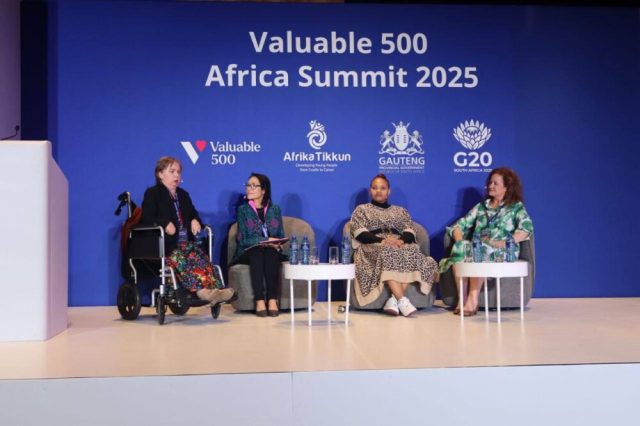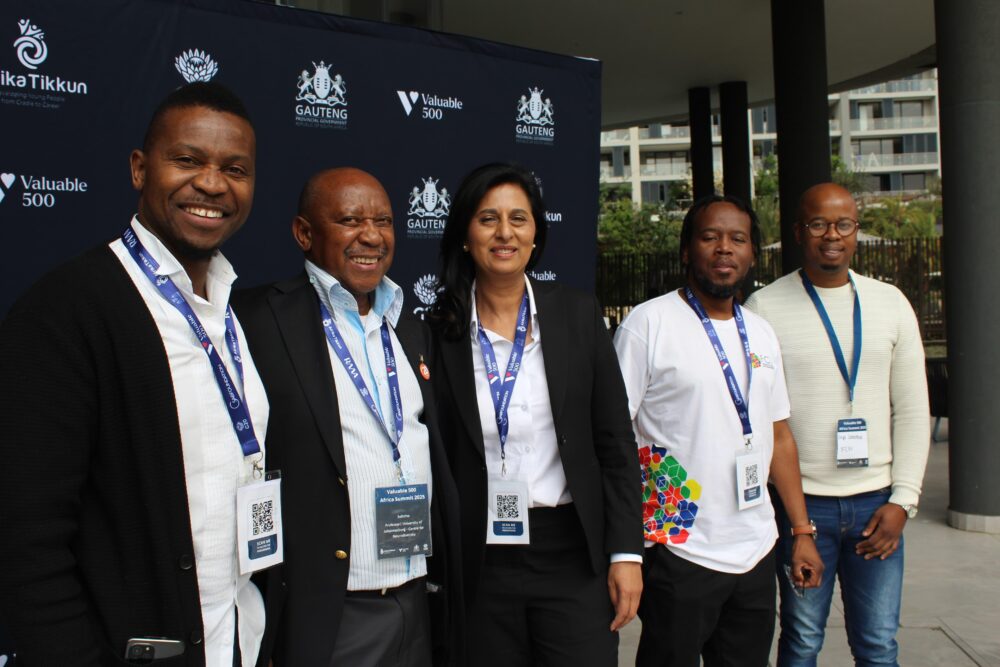
Companies that practice disability inclusion innovate faster, are more productive, and outperform their competitors.
“Disability inclusion is not charity, it’s smart business.” That was the clear message from the inaugural Valuable 500 African Summit 2025, held on Tuesday at The Venue, Houghton Hotel in Johannesburg.
Hosted by leading youth development non-profit, Afrika Tikkun, in partnership with the Valuable 500 and the Gauteng Provincial Government, the gathering brought together business leaders, civil society, policymakers, disability rights activists and education specialists. Framed as the first of its kind on the continent, the summit sought to create a platform for sharing best practices, raising awareness, and driving systemic change for persons with disabilities.
A call for leadership
Speakers urged business leaders to move beyond symbolic gestures and demonstrate intentional, authentic commitment to disability inclusion in the workplace. “It is both a moral imperative and a human rights issue,” delegates agreed, “but also a sound business strategy.”
The day-long indaba explored five critical themes through panel discussions: leadership, representation, reporting, public-private partnerships, and innovation and the future of work. Adding to the atmosphere, a Field Band made up mainly of learners with disabilities entertained guests with vibrant marimba performances.

Galvanising business action
In his welcome remarks, Marc Lubner, Group Chief Executive Officer, Afrika Tikkun, said the Valuable 500 represented “a critical step in galvanising business leaders to lead by example and adopt progressive, inclusive practices.”
Lubner explained the origins of the initiative: during a World Economic Forum meeting, a delegate highlighted how little was being done globally to advance disability inclusion. The concept of the Valuable 500 was born, encouraging companies to adopt inclusive processes and be ranked accordingly. “It became aspirational,” Lubner noted, “because the world’s biggest companies all wanted to be seen as inclusive.”
His daughter’s experience at a disability inclusion conference in Austria helped inspire Afrika Tikkun to bring the summit to Africa.
For more than three decades Afrika Tikkun has championed holistic social and economic development for young people in South Africa through its award-winning Cradle-to-Career 360° model. Now, through its partnership with the Valuable 500, the organisation is extending that vision by committing to help foster workplaces, communities and systems that are accessible to all.
“Disability inclusion is not a programme at Afrika Tikkun — it is a principle,” said Lubner. “With a footprint in five township communities and reach across nine provinces, Afrika Tikkun integrates over 700 persons with disabilities each year into our cradle-to-career pipeline — from early learning to economic empowerment.”
Inclusion drives innovation
Katy Talikowska, CEO of the Valuable 500, argued that companies embracing disability inclusion do not just perform better socially but also dominate their markets. “Diverse teams solve problems differently. They build products that work for more people and tap customer bases others miss,” she said.
She announced the official launch of Valuable 500 Africa, with a goal of securing 50 founding companies on the continent. Africa, she said, was the ideal place: “This is the youngest population on earth, with the fastest-growing economies and entrepreneurs solving problems the rest of the world has yet to define.”
Yet, she warned, disability remains misrepresented in advertising. “Over 20% of the global population is disabled, but only 1% of advertising includes disabled people — and often misrepresents them. That has to change.”

Lived experiences and resilience
Entrepreneur Gary Kyriacou, founder of Marble Hospitality Group, shared his personal journey of overcoming ADHD and dyslexia. He described his conditions not as deficits but as a “superpower” that allowed him to see the world differently. “Business is my art, my creativity,” he told the audience. “So-called ‘normal’ people often saw me as different, but over time you realise it’s them who are not normal.”
Policy and rights
Representing the Department of Women, Youth and Persons with Disabilities, Phuthi Mabelebele emphasised government’s commitment to legislative frameworks that protect the rights of people with disabilities. “Inclusion is a fundamental human right,” she said. “We don’t beg — we demand that companies have policies that promote inclusion.”
Looking ahead The summit closed on a note of urgency and optimism. Delegates agreed that disability inclusion must shift from the margins to the mainstream, not only as an ethical responsibility but as a driver of innovation and growth. With the launch of Valuable 500 Africa, the continent now has a platform to push businesses to lead with authenticity, vision, and accountability.
Companies that practice disability inclusion innovate faster, are more productive, and outperform their competitors. “Disability inclusion is not charity, it’s smart business.” That was the clear message from the inaugural Valuable 500 African Summit 2025, held on Tuesday at The Venue, Houghton Hotel in Johannesburg. Hosted by leading youth development non-profit, Afrika Tikkun, in partnership with the



